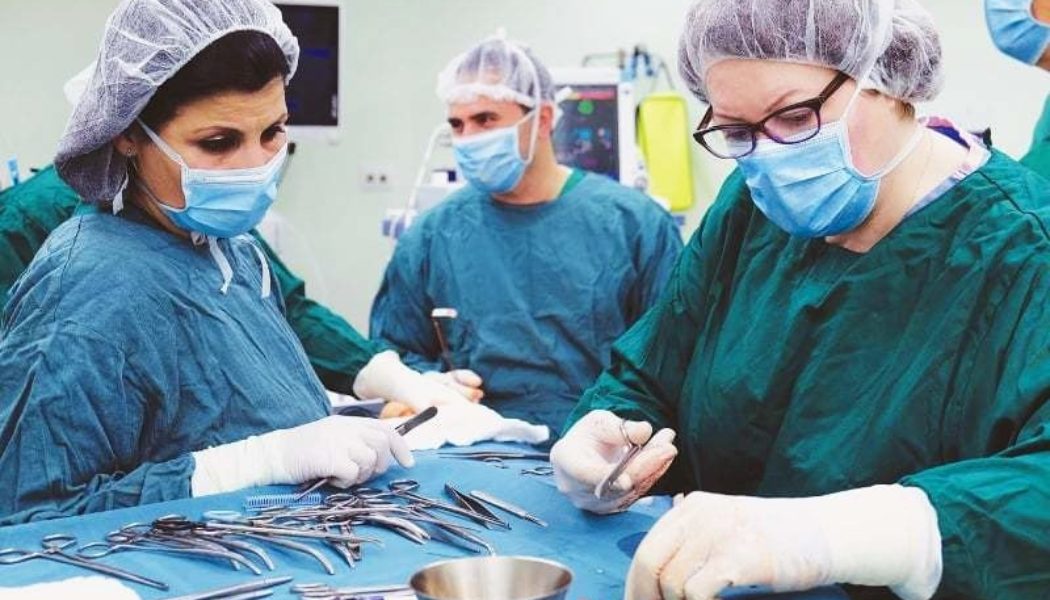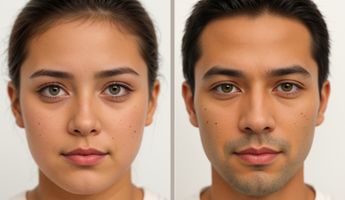Sex Reassignment Surgery (Female To Male) in Greece
Find the best clinics for Sex Reassignment Surgery (Female To Male) in Greece
No clinics available
Thailand offers the best prices Worldwide
Price: $ 556

Compare Before & After Photos of _procedure_photos.phpSex Reassignment Surgery (Female To Male)


Half-side view


Front view


Half-side view


Front view


Front view


Front view


Front view


Front view
WHY US?
At Medijump, we're making medical easy. You can search, compare, discuss, and book your medical all in one place. We open the door to the best medical providers worldwide, saving you time and energy along the way, and it's all for FREE, no hidden fees, and no price markups guaranteed. So what are you waiting for?

Free

Best Price

Widest Selection

Risk-Free
What you need to know about Sex Reassignment Surgery (Female To Male) in Greece

Some people are born male and some are born female. While there are some people who are transgender, whose gender identity does not match their assigned sex. Sex change surgery, also known as gender reassignment surgery (GRS) or sex reassignment surgery (SRS) is there to help these people. This is a surgical procedure that changes the sex of a person. It changes a transgender person’s physical appearance according to there identified gender. It treats gender dysphoria in these people. This includes both feminization and masculinization surgeries. In masculinization surgery, there are two domains:
- Top surgery
- Bottom surgery.
In top surgery, mastectomy is performed to remove the breasts and give your chest a more male-like contour. Bottom surgery involves increasing the length of the clitoris which is called metoidioplasty, production of a penis, and scrotum which are known as phalloplasty and scrotoplasty respectively, and removal of the uterus that is a hysterectomy. This surgery is not for everyone. A number of things are considered before opting for surgery. However, normal people with assigned gender can also go for this if they want to.
Before the operation, your assigned sex does not correspond to your gender identity. You suffer from gender dysphoria. You feel uncomfortable in your skin. However; after the surgery, you are a person of your desired sex. You are converted from a female to a male.
What is the cost of Sex Reassignment Surgery (Female To Male) in Greece?
Like any intricate healthcare process, the price for undergoing Sex Reassignment Surgery (Female To Male) is not a fixed figure in Greece. The final tally significantly sways due to issues like the patient's comprehensive health status, distinct surgical necessities, and the operating surgeon's level of proficiency. It's vital, too, to factor in the cost of post-procedure care, prescribed medicines, and extra treatments, all of which substantially contribute to the total expenditure.
Moreover, distinct clinics situated in Greece might provide an array of payment structures or offer financial aid alternatives. It's advisable to undertake thorough investigations or reach out to prospective clinics directly to obtain a precise cost prediction.
What does a Sex Reassignment Surgery (Female To Male) Procedure Involve?
Anesthesia is given to ensure that the patient does not suffer from pain during the surgery. Top and bottom surgeries are performed differently.
-
Mastectomy: It is performed in two ways. In one method, an incision is given around the areola and excessive fat and breast tissue are removed through it. The skin is left as it is for a year. It retracts in this period of time. This method leaves prominent scars. In the other method, excess skin is also removed along with the tissue and fat. This leaves fewer scars. After this, male-like the contour of the chest is obtained.
In the other step, female reproductive organs that are present inside your body are removed.
-
Hysterectomy: Total Hysterectomy is the removal of uterus and cervix. Another surgery, bilateral salpingo-oophorectomy (BSO) is performed to remove fallopian tubes. In this way, the entire female reproductive system is eliminated from the body.
After this, procedures for the construction of male reproductive organs begin. They include,
- Metoidioplasty: Androgenic hormones are given to increase the length of the clitoris. Length is increased to almost 1.6 to 2 inches.
- Phalloplasty: It is performed to create a penis or to increase the length of it. It can be done in 4 ways. All of these work on the same principle. A flap of skin is taken from a donor site of the body such as an arm or abdomen to make a penis out if it. It is joined to the urethra. This is the most complicated step of GRS. An erectile prosthesis is inserted into the penis to achieve an erection.
- Scrotoplasty: Scrotum is produced from labia majora and prosthetic testes are inserted into it.
How Long Should I Stay in Greece for a Sex Reassignment Surgery (Female To Male) Procedure?
It is a long procedure involving a number of surgeries. There is top surgery and bottom surgery. Mastectomy takes 2 to 3 hours in the operation theatre. While bottom surgery requires more time. It takes 8 to 10 hours for a female to male GRS. You should plan to stay in the area for at least 14 days after your Procedure, During this duration, your health conditions are monitored regularly and your stitches are removed after 10 to 14 days. You can go home when allowed to by your physician.
What's the Recovery Time for Sex Reassignment Surgery (Female To Male) Procedures in Greece?
You will have to take 2 weeks off work. After 2 weeks, you can start a light activity and can go back to office work. A Patient will need more time to get back to physical work. You can start strenuous activity 4 to 6 weeks after bottom surgery. Pain killers are given in this period to deal with moderate pain. Scars take some time to fade away. It can take years after the surgery to settle both physically and psychologically.
What sort of Aftercare is Required for Sex Reassignment Surgery (Female To Male) Procedures in Greece?
Following points should be considered to look after you post-surgery:
- Go for regular check-ups.
- Take your medicines as and when prescribed by the doctor.
- Live with someone who takes care of you while you recover.
- Abstain from sexual activity till allowed by your doctor.
- Do not take a bath or shower with bandages intact. It can cause infection.
- Avoid strenuous exercise in the early few days after surgery.
- Do not lift heavy objects; it puts pressure on your stitches.
- Avoid excessive movement. Take a rest.
What's the Success Rate of Sex Reassignment Surgery (Female To Male) Procedures in Greece?
The success rate of Sex Reassignment Surgery (Female To Male) within Greece depends on a spectrum of elements. Such factors encompass the proficiency and prior expertise of the surgical unit, the comprehensive health condition of the person, their mental readiness, and compliance with the suggested after-treatment attention. An abundance of research has pointed out that a majority of individuals who choose Sex Reassignment Surgery (Female To Male) acknowledge a marked enhancement in their lifestyle quality, elevated mental health, and a noteworthy contentment level with the physical transformations.
According to a study, 97% of the people who went through this surgery found their results satisfactory. You need to be sure before opting for it, as it is a lifetime decision. GRS is mainly for the treatment of dysphoric and transgender people.
Are there Alternatives to Sex Reassignment Surgery (Female To Male) Procedures in Greece?
The following are some alternatives to sex reassignment surgery:
- Hormone replacement therapy: this therapy aids in changing your secondary sex characteristics according to your desired sex. In the case of female to male sex change, testosterone is given. This induces hair growth and coarseness of voice. It reduces breast growth and changes in fat distribution in your body. It also stops menstruation.
- Altering physical appearance: you can alter your physical appearance, your dressing, your hair, your makeup in accordance with your desired sex. Do regular exercises to build up muscle mass which will make you look like a male.
- Psychological counseling: it will make you handle your personality. Gender reassignment surgery cannot be reversed. Therefore, you should make your decision wisely.
- Cosmetic surgery: it is a wide field covering a number of domains. It can alter your facial features, your body fat, your waist, your stomach, your chest to transform you into your desired gender. You can go for liposuction, mastectomy, Botox, fillers, Rhinoplasty, etc.
All of the methods, mentioned above are not permanent but are helpful. For permanent change, you have to go for sex reassignment surgery.
What Should You Expect Before and After the Procedure
Prior to initiating the Sex Reassignment Surgery (Female To Male), it is necessary to ensure each individual undergoes thorough psychological analysis and counseling. These checks serve to affirm the patient's emotional readiness and ability to cope with the aftermath of the procedure. In addition to mental health evaluations, multiple medical assessments are implemented to inspect their overall health state. Recognizing any pre-existing health issues is of utmost importance as they can potentially impact the result of the surgery. Regularly scheduled consultations with knowledgeable healthcare professionals are fundamental to this process. These meetings will entail in-depth explanations and discussions to help formulate a holistic understanding of the entire procedure and its ensuing effects.
After the execution of the surgical procedure, there's a need for mental readiness for an extensive recovery period. This stage typically demands diligent post-procedure care and major lifestyle adjustments. Surgical recovery isn't typically a swift process - it's a path that entails physical changes and lifestyle adaptations, necessitating a period of adjustment for the patient. The adoption of healthy habits becomes particularly important during this period. Activities like regular physical activity, adhering to a nutritious diet, and incorporating stress-relief practices are proven to carry several benefits. Moreover, in addition to the emphasis on physical recuperation, mental health should also be prioritized equally.
What are Potential Risks of Sex Reassignment Surgery (Female To Male)?
Each surgical procedure comes with inherent risks and potential complications, including Sex Reassignment Surgery (Female To Male). These might encompass general surgical risks such as infection, bleeding, or adverse reactions to anesthetic drugs. Specific to Sex Reassignment Surgery (Female To Male), there may also be healing-related risks, which could result in necrosis or lackluster cosmetic outcomes. Educating oneself about the possible complications of surgical procedures is beneficial for better preparation.
Additionally, extended exposure to hormonal treatment might escalate the risk of cardiovascular ailments or osteoporosis. There could also be mental health concerns such as depression or anxiety, which may spring from society's responses or personal adaptation to a new identity. Frequent consultations with a healthcare professional are essential to keep track of and mitigate any possible risks or complications.
Whilst the information presented here has been accurately sourced and verified by a medical professional for its accuracy, it is still advised to consult with your doctor before pursuing a medical treatment at one of the listed medical providers
No Time?
Tell us what you're looking for and we'll reachout to the top clinics all at once
Enquire Now

Popular Procedures in Greece
Prices Start From $497

Prices Start From $1,552

Prices Start From $500

Prices Start From $1,000

Recommended Medical Centers in Greece for procedures similar to Sex Reassignment Surgery (Female To Male)

- Interpreter services
- Translation service
- Religious facilities
- Medical records transfer
- Medical travel insurance
- Health insurance coordination
- TV in the room
- Safe in the room
- Phone in the room
- Private rooms for patients available

- Interpreter services
- Translation service
- Religious facilities
- Medical records transfer
- Medical travel insurance
- Health insurance coordination
- TV in the room
- Safe in the room
- Phone in the room
- Private rooms for patients available

- Interpreter services
- Translation service
- Religious facilities
- Medical records transfer
- Medical travel insurance
- Health insurance coordination
- TV in the room
- Safe in the room
- Phone in the room
- Private rooms for patients available

- Interpreter services
- Translation service
- Religious facilities
- Medical records transfer
- Medical travel insurance
- Health insurance coordination
- TV in the room
- Safe in the room
- Phone in the room
- Private rooms for patients available

- Interpreter services
- Translation service
- Religious facilities
- Medical records transfer
- Medical travel insurance
- Health insurance coordination
- TV in the room
- Safe in the room
- Phone in the room
- Private rooms for patients available

- Interpreter services
- Translation service
- Religious facilities
- Medical records transfer
- Medical travel insurance
- Health insurance coordination
- TV in the room
- Safe in the room
- Phone in the room
- Private rooms for patients available

- Interpreter services
- Translation service
- Religious facilities
- Medical records transfer
- Medical travel insurance
- Health insurance coordination
- TV in the room
- Safe in the room
- Phone in the room
- Private rooms for patients available

- Interpreter services
- Translation service
- Religious facilities
- Medical records transfer
- Medical travel insurance
- Health insurance coordination
- TV in the room
- Safe in the room
- Phone in the room
- Private rooms for patients available

- Interpreter services
- Translation service
- Religious facilities
- Medical records transfer
- Medical travel insurance
- Health insurance coordination
- TV in the room
- Safe in the room
- Phone in the room
- Private rooms for patients available

- Interpreter services
- Translation service
- Religious facilities
- Medical records transfer
- Medical travel insurance
- Health insurance coordination
- TV in the room
- Safe in the room
- Phone in the room
- Private rooms for patients available
